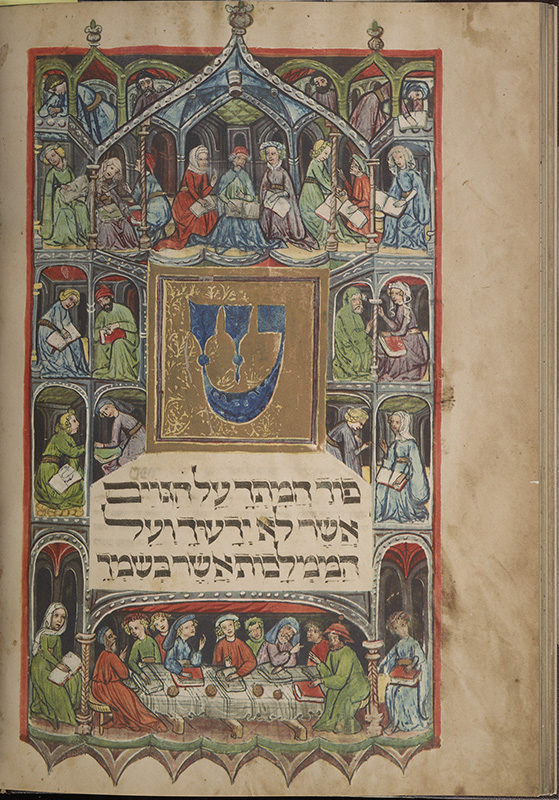Share This Article
The Darmstadter Haggadah. Photo courtesy of David M. Rubenstein Rare Book & Manuscript Library, Duke University
Quick: “Why do Jews from Gibraltar sprinkle brick dust into their Passover haroset dish?”
Or, “Why do Middle Eastern Jewish families whip themselves with scallions at the seder table?”
The answers to those questions and others are part of a set of trivia place cards developed by two Jewish organizations ahead of Passover, the Jewish festival that commemorates the Exodus story in which God delivered the ancient Israelites from slavery to freedom.

Old illuminated Haggadah (Presburg 1773). A Jewish text that sets forth the order of the Passover Seder. Switzerland. (Photo by: Godong/UIG via Getty Images/via JTA)
The festival, which begins this year on Friday (March 30), is marked by a ritual meal called the seder, where Jews gather around the dinner table to retell the biblical Exodus story using a guide with Scripture texts, commentaries and songs.
Each year, Jewish organizations add more options for the central guide, called the Haggadah. This year is no different.
There’s ReOrdered, a Passover toolkit from the American Jewish Joint Distribution Committee’s Entwine project that focuses on Jews globally.
There’s the HIAS Haggadah Supplement, from the Jewish refugee resettlement agency, with a special focus on the contemporary refugee crisis.


There’s even the Trump Passover Haggadah, a tongue-in-cheek take for more liberal Jews wanting liberation from a president they view as Pharaoh-like.
The trivia place cards were created by Be’chol Lashon or “In Every Tongue,” an advocacy organization for Jewish ethnic, cultural and racial inclusiveness, and Repair the World, a Jewish service organization.
“We want folks to think about what makes us free today,” said Laura Belinfante, director of digital campaigns for Repair the World. “How can we commit to a place of shared freedom?”
The cards, alongside a Haggadah insert, are resources that encourage participants to consider what it means to retell the story of Exodus with the words “We were slaves.”
Passover is the most widely observed Jewish holiday and its Exodus story has been adapted to tell of other present-day liberation stories.
As for the answers to the trivia questions above: The Jews of Gibraltar, a territory on Spain’s south coast, sprinkled brick dust on their haroset to remind themselves of the bricks the ancient Israelites made as slaves for Pharaoh.
And Middle Eastern Jews whip themselves with scallions to mimic the whips of slave drivers in Egypt.
Photo: AP

